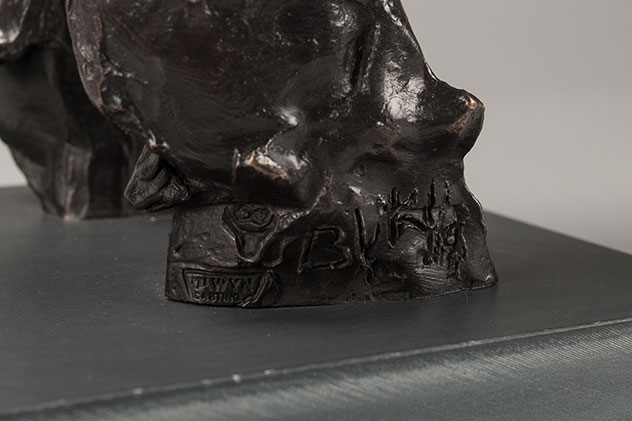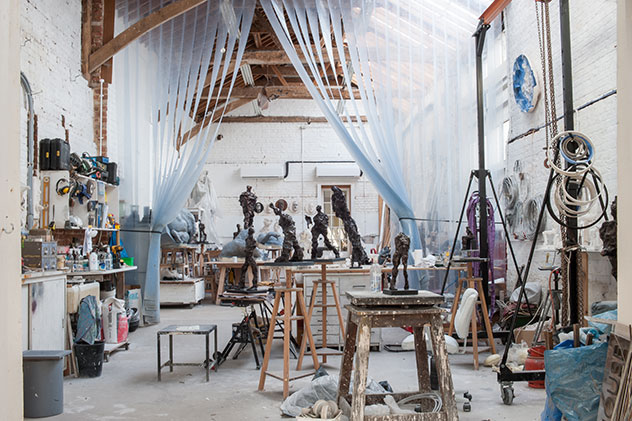In a revolutionary step for the art world, DACS and Verisart - the blockchain certification platform for the arts – have unveiled a new hallmark for bronze sculpture: one that incorporates bronze with blockchain technology.
A short history of hallmarks
The use of hallmarks as proof of authenticity is nothing new in the art world; in fact, they have been present on gold since it was first proposed in the 1300s. However, today the market is seeing an increasing level of bronze sculpture forgeries and fakes. Labelled ‘resin bronze’, ‘cold cast bronze’ or ‘bonded bronze’, these sculptures are in fact not bronze, but more akin to plastic. The result of this influx damages not only collectors’ confidence, but also the reputation and skill of the artist and their trade.
Bronze meets blockchain
‘Bronzechain’ combines the ancient use of a hallmark stamp with a blockchain digital certificate registered by the artist and foundry; together, validating the authenticity of the artwork in perpetuity.
British sculptor Maurice Blik, a DACS member and former President of the Royal Society of Sculptors, first proposed the concept of ‘Bronzechain’. Working closely with the material, he recognised the rising issue of bronze forgery. This is when he first approached DACS. He said: “With this hallmark, people can be assured that they are getting genuine bronze.“
Mark Waugh, Business Development Director at DACS: “We are proud to support the innovative ideas of artists who help us find real solutions that enhance and protect the financial landscape for artists. ‘Bronzechain’ is a nuanced and intuitive solution that elegantly combines blockchain technology with art world sensibilities to build confidence in the art market through provenance data.”

Making its mark
The soon-to-be iconic ‘
Bronzechain’ stamp is licensed by DACS to approved bronze art foundries, who in turn, stamp it in the wax before casting each sculpture. A
digital certificate of authenticity is recorded by the DACS copyright licensing service and certified on
Verisart. Each blockchain certificate produced by Verisart reinforces the physical hallmark by recording technical data specific to each artwork, including dimensions, location of hallmark and edition number. As a result – and good news for the art world – this makes the handling of bronzes significantly more secure and transparent.
Beyond bronze and the naked eye
The emergence of ‘Bronzechain’ will also have a positive impact upon artworks sold on the secondary market, and in turn, on the
Artist’s Resale Right (ARR). Accurate authenticity will not only give art market professionals greater confidence when handling artworks but will also make transactions of artists’ works more traceable.
The Artist’s Resale Right enables visual artists and estates within copyright to receive royalties from the resale of their work by galleries, auction houses and dealers. Since ARR was introduced in 2006, nearly 5,000 artists and estates have been paid more than £65 million in ARR royalties by DACS.
Maurice Blik’s solo exhibition takes place at
Bowman Sculpture Gallery, London, 13 April – 4 May 2018.

If you are an artist or foundry interested in ‘Bronzechain’, get in touch via
[email protected], or on Twitter at
@DACSforArtists.
Find out more:
Find out more about the Artist’s Resale Right
View the Bronzechain stamp
View a Bronzechain certificate
Read our press release (PDF)
#Bronzechain
Images: Dancing (large) © Maurice Blik, 2018. Photo Bowman Sculpture; Listening © Maurice Blik, 2018. Photo Bowman Sculpture; Maurice Blik Studio © Photo Bowman Sculpture, 2018.